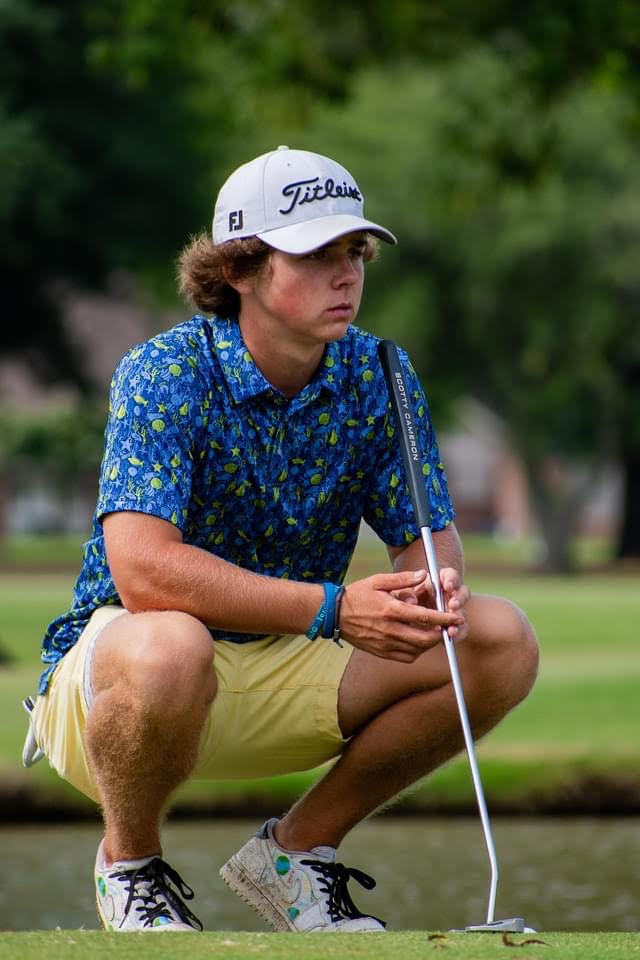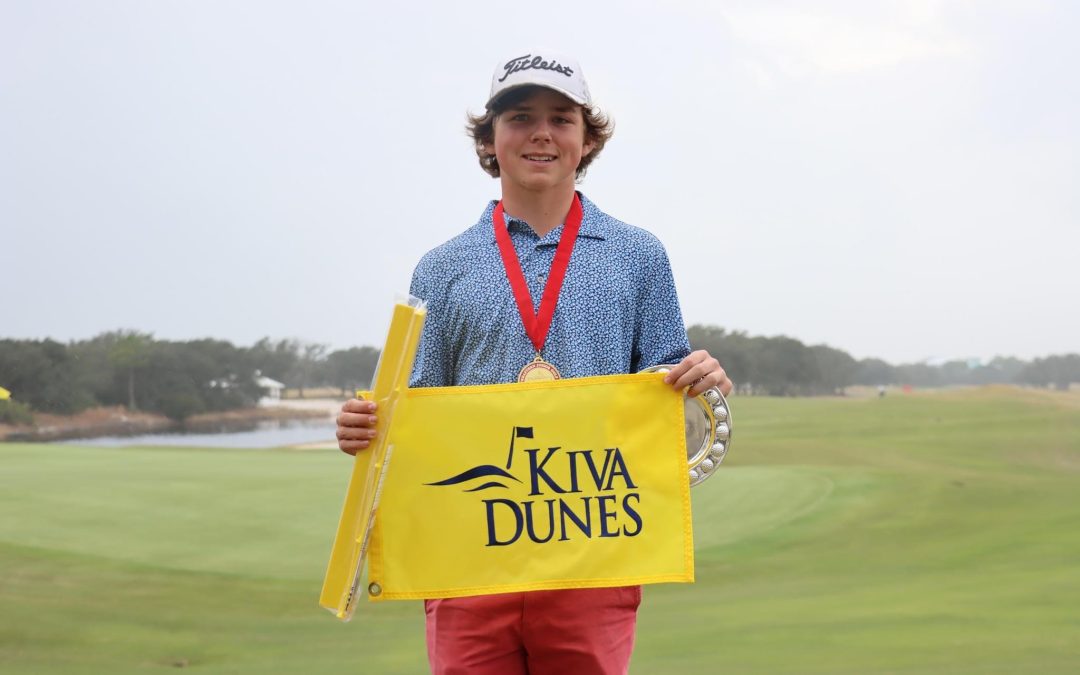Dakota Cunningham was diagnosed with acute lymphoblastic leukemia at age 11 and to say his life changed in an instant is an understatement. His days of sprinting down the soccer field were now replaced with hospital rooms, chemotherapy treatments, and a long road to recovery.
This diagnosis could have marked the end of Dakota’s athletic dreams, but instead it became the beginning of an inspiring journey and has taken him to unimaginable heights. Now 19 and playing college golf, he shows us how each journey past junior golf is one-of-a-kind.
A familiar sport turned new
Golf wasn’t entirely new to Dakota. He had grown up around the game in Olive Branch, Mississippi. His Dad played in mini-tours before Dakota was even born and played in team scrambles as Dakota was growing up. “It was fun to hang out with him and his friends,” Dakota remembers. “But back then, I never really thought of it as my sport.”
This changed with his leukemia diagnosis though. Soccer was off the table due to the physical toll of the intense treatments and Dakota needed something to get his body moving again. Golf became the answer. “I was just trying to get moving, learning to walk again, and trying to regain balance and coordination again,” he says. “Golf became my therapy.”
Dakota wasn’t focused on competitive golf at all during the early days, but was simply focused on healing. He began with simple chip shots, slowly rebuilding his strength while spending time with his dad. Dakota shares how he even lost his short-term memory during treatment, but focusing on the individual golf shot recounts helped him improve his memory.
Growing in the game
As his treatment progressed, his love for the game grew right alongside. “As I played more, I fell in love with the game and began enjoying every bit of it,” he says. “I started taking it more seriously during my last year of treatment,” he explains. “That’s when things really clicked.”
Dakota kept playing, despite the hard days, plus the demanding physical and mental challenges of treatment. During this time, he realized he loved the individual aspect of golf because everything depended on him. He was ready to get more serious about it as a sport.
“I started taking golf more seriously in my last year of treatment and was able to start playing in the Junior PGA summer league. In fact, I made it to the All-Star league and represented our area in state. We even won for the state of Tennessee.”
College golf comes into focus
As Dakota regained strength, his golf goals kept growing. College golf became a serious consideration. “Right after treatment, I looked at my dad and said, ‘I want to give a run at playing D-1 golf,’” he recalls. At this point he was all in.
He knew the recruitment road wouldn’t be easy. Starting golf later than most competitive juniors meant he had catching up to do and the recruiting process came with its own set of challenges.
“It was not fun,” Dakota admits when talking about recruiting. “There are so many ups and downs you can’t control. Some coaches were scared because of my past and worried about how it would impact my physical endurance and abilities in college, but other coaches saw it as a strength – and that is how I chose to present it.”
In the end, Dakota chose to let his game do the talking. “I did not let cancer be a main factor in having a coach recruit me. My golf spoke for itself,” he says. “It has taught me to work hard, no matter the circumstances or the cards I am dealt. I have learned to give 100% every day to try and reach the goals I set for myself.”
A perspective beyond the scorecard
Now playing college golf with the University of Louisiana-Monroe, Dakota carries with him a deep sense of perspective. He knows what it means to fight through adversity and it seems like he’s not taking any moment for granted.
“Golf, or whatever your sport is, doesn’t define you as a person,” he reflects. “When I have a bad round, I just remind myself, ‘Well, it’s not cancer,’ and I am thankful for every day and every blessing.”
For Dakota, every hole played is a reminder of how far he’s come. His journey may not have followed a traditional junior golf path, but it’s certainly his own. It’s filled with determination, gratitude, and an unwavering love for the game.
If he’s offering advice to a junior golfer, he’s likely telling them to stay the course.“Everybody’s golf journey is different,” he says. “There is no normal road. You just keep walking yours.”
The St. Jude connection
As the professional golfers tee it up in the 2025 FedEx St. Jude Championship this week, I think it’s a perfect time to reflect on Dakota’s own experience with the St. Jude Children’s Research Hospital. Early in his treatment journey, Dakota’s family sought help from the Memphis-based children’s hospital. It was there Dakota received life-changing treatment — and a visit from a couple of PGA superstars.
In 2019 while in an intense treatment period, Jordan Spieth and Justin Thomas stopped by the hospital and met Dakota. They even watched his golf swing frame-by-frame on the phone! He also partnered with Justin Rose during the same week to help raise funds during the 2019 WGC-FedEx St. Jude Invitational. Certainly a bright spot during an otherwise grim treatment experience.
Fast forward years later, with cancer behind him and as a college golfer, Dakota has his sights set on the professional stage in due time. Something tells me if he faces the challenges of becoming a PGA tour pro the way he handled his treatment and junior golf journey, then there’s no doubt we will be seeing him on Sunday afternoons.


